|
Hong Kong, China
 Value Added Tax
Value Added Tax
➤ If you do not have offices in Hong Kong, you should not be charged VAT or GST for materials and labor while exhibiting there.
 Voltage
Voltage
➤ Hong Kong uses 220V.
➤ U.S. equipment that can only run on 110V will need a step-down transformer, and you will need to specify the power rating when ordering the transformer from the electrical supplier.
 Garbage
Garbage
➤ Your exhibit house will generally take care of basic cleaning during the show. You can also order this service from the venue.
➤ Show organizers will determine whether there is a build-and-burn disposal fee. The fee will depend on the volume and types of materials being disposed. Check your exhibitor manual for details on cost.
➤ You are responsible for trash generated during installation and dismantle. Exhibitors are often required to pay a "damage deposit" before the show. The cost associated with disposing any trash not collected at the end of the show is then deducted from that deposit.
 Cellphones
Cellphones
➤ If you have international service on your U.S. cell phone, it should work in Hong Kong.
 Smoking
Smoking
➤ Smoking is not allowed within show halls, but some venues have designated smoking areas.
 Music
Music
➤ Exhibitors must pay music rights. Contact the Composers and Authors Society of Hong Kong Ltd. (www.cash.org.hk) for details.
 Emergencies
Emergencies
➤ Dial 999 from land lines.
➤ Dial 112 from cell phones.
Greetings and Culture

➤ Since most attendees speak English, a simple, "Nice to meet you," is an appropriate greeting.
➤ Grasping both hands is a common greeting gesture in Hong Kong.
Hospitality
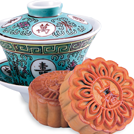
➤ Hospitality is common in booths of all sizes at trade shows in Hong Kong.
➤ Typical fare consists of fruit juices, sodas, coffee, tea, beer, and finger foods such as sandwiches, cookies, or pastries.
➤ All food and drink served inside trade show exhibits must be ordered through the venue's catering services.
➤ Serving alcohol in exhibits is common in Hong Kong, though not expected at every booth.
➤ It is customary to serve drinking water at room temperature in Hong Kong.
Language
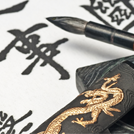
➤ While English is widely spoken, there may be attendees who speak only Mandarin or Cantonese.
➤ Both Cantonese and Mandarin translators are encouraged. Specify the level of translation needed (general conversation or technical business) when hiring a translator.
➤ Signage and business cards should be printed in English and Cantonese.
Staff Attire
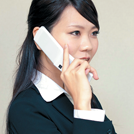
➤ Business suits are the most common outfits for both male and female staffers. However, matching company shirts with logos are becoming more acceptable.
➤ Piercings and tattoos should be covered.
Venues and Resources
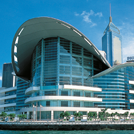
➤ Hong Kong Convention and Exhibition Centre is located right on the harbor and has easy access to the city center and airport. It has six exhibit halls covering 573,000 square feet of space. www.hkcec.com.hk
➤ AsiaWorld-Expo is integrated with Hong Kong International Airport and has quick access to the center of the city. The venue boasts 10 halls covering more than 753,000 square feet. www.asiaworld-expo.com
➤ Hong Kong Tourism Board: www.discoverhongkong.com
General Facts and Tips
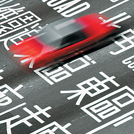
➤ While shows in Hong Kong typically have shorter install times than comparable U.S. shows, labor crews tend to work more quickly and add extra hands to finish the job on time.
➤ As Hong Kong is a multicultural city, there are not as many "cultural taboos" as there are in some Asian cities.
➤ Due to the city's proximity to Macau, it is very popular to take a one-hour ferry to the Asian version of Las Vegas.
➤ Book travel and hotel accommodations early, especially during the peak travel season (September to November).
➤ Since most taxi drivers in Hong Kong do not speak English, it is important to have all of your destinations written in Mandarin so you can show the cab driver where you need to go.
➤ If you are invited for a meal, do not start eating without first being greeted. Also be aware that if you finish your food too fast, your hosts will be embarrassed and assume they did not order enough food for the meal.
Installation and Dismantle
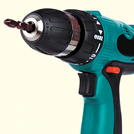
➤ There are no labor unions involved in Hong Kong exhibit halls.
➤ Workers are paid for an eight-hour workday with breaks. Overtime is paid for work beyond eight hours.
➤ Labor should be booked in advance of the show. Your exhibit house will have its own labor, or you can hire labor from the show's organizer.
➤ Electrical power is handled by the official show contractor. You can order a power main from the official contractor and have your own electrical supplier provide the distribution and wiring work in your booth.
➤ Freight forwarders will deliver your shipments to your booth space inside the show venue with no separate charge for drayage.
SOURCES
Daphne Choi, director of project and account services, Uniplan Hong Kong Ltd., Hong Kong; Chris Dorn, president, Idea International Inc., Tokyo; Jeffrey S. Hannah, president, Nuance International Inc., Lawrenceville, GA; Justin Hawes, managing director, Scan Displays Inc., Johannesburg; David Humphreys, project controller, SDD Exhibitions Inc., Sheffield, England; Lorri Ann Hurst, founder and managing partner, TTM International LLC, Minneapolis; Gino Pellegrini, president and design director, Inter-Global Exhibitions Group, Denver; Jason Popp, executive vice president, Global Experience Specialists Inc., Chicago; Kelli Steckbauer, director of global business, MG Design Associates Inc., Chicago; Jeannine K. Swan, president, Global Exhibition Management Inc., Fort Worth, TX; Horst Tondasch, president, Coral Enterprises Inc., Fort Myers, FL
|










 ➤ Since most attendees speak English, a simple, "Nice to meet you," is an appropriate greeting.
➤ Since most attendees speak English, a simple, "Nice to meet you," is an appropriate greeting. ➤ Hospitality is common in booths of all sizes at trade shows in Hong Kong.
➤ Hospitality is common in booths of all sizes at trade shows in Hong Kong. ➤ While English is widely spoken, there may be attendees who speak only Mandarin or Cantonese.
➤ While English is widely spoken, there may be attendees who speak only Mandarin or Cantonese. ➤ Business suits are the most common outfits for both male and female staffers. However, matching company shirts with logos are becoming more acceptable.
➤ Business suits are the most common outfits for both male and female staffers. However, matching company shirts with logos are becoming more acceptable. ➤ Hong Kong Convention and Exhibition Centre is located right on the harbor and has easy access to the city center and airport. It has six exhibit halls covering 573,000 square feet of space.
➤ Hong Kong Convention and Exhibition Centre is located right on the harbor and has easy access to the city center and airport. It has six exhibit halls covering 573,000 square feet of space.  ➤ While shows in Hong Kong typically have shorter install times than comparable U.S. shows, labor crews tend to work more quickly and add extra hands to finish the job on time.
➤ While shows in Hong Kong typically have shorter install times than comparable U.S. shows, labor crews tend to work more quickly and add extra hands to finish the job on time. ➤ There are no labor unions involved in Hong Kong exhibit halls.
➤ There are no labor unions involved in Hong Kong exhibit halls.


